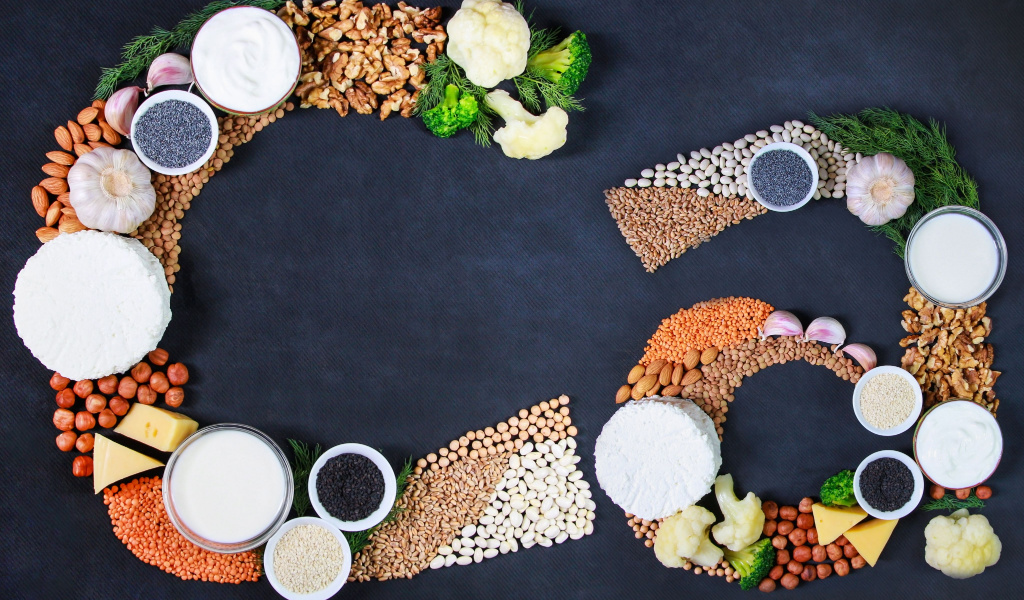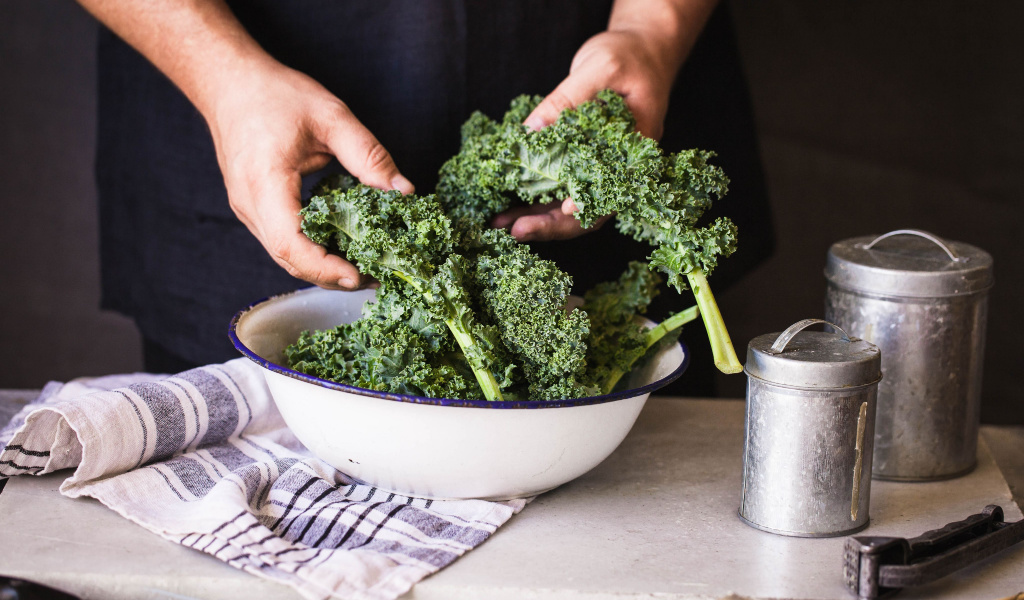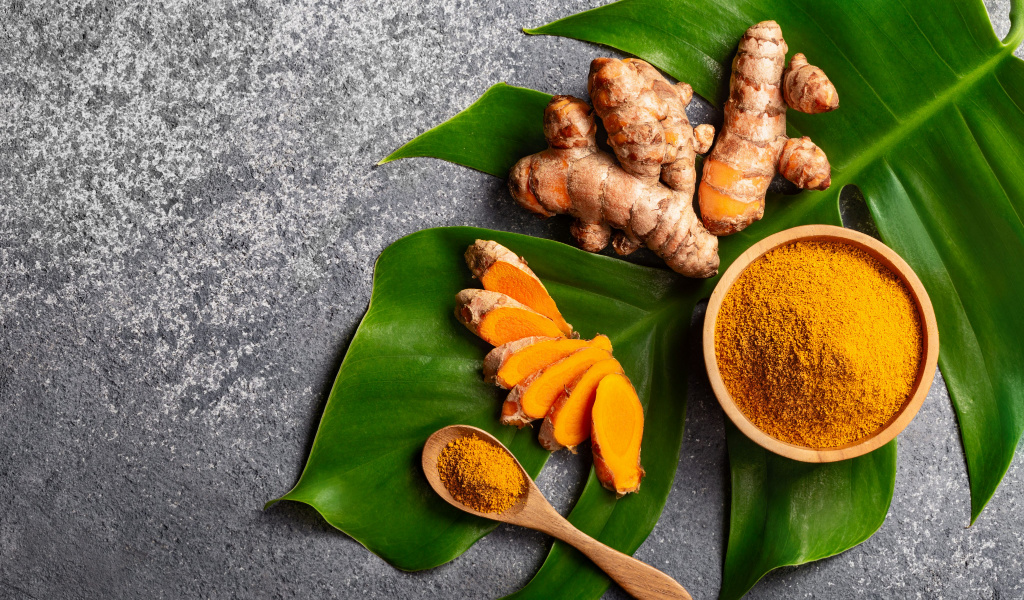It’s been drilled into us enough times that we all know that calcium is essential in maintaining strong teeth and bones. Not only does calcium help prevent chronic bone-related ailments like osteoporosis and help keep your pearly whites strong, but it is also a vital influence in the processes of blood clotting and muscle contraction. Plus, it helps keep that all-important heart healthy and keep beating properly!
But here’s where most people get things wrong – milk isn’t the only (or even the richest) source of calcium. While there’s no denying that dairy-based products are rich in calcium, it’s wrong to assume that nothing else is good enough. In fact, there are so many other foods out there that contain lots of calcium, and many of them are actually plant-based!

Some of these foods may already be part of your regular meals without you even knowing how calcium-rich they are. A lot of us feel obligated to drink or make our children drink at least one glass of milk per day, but if you regularly include the following foods in your diet, that won’t be necessary at all!
Here are 10 rich plant-based sources of calcium:
Tofu
The recommended daily intake of calcium is 1,000 mg. When it comes to tofu, it’s not that difficult to achieve that because a single block of the stuff contains a whopping 1,624 mg of calcium! Tofu is extremely versatile and can be eaten in a number of different ways. It can be stir-fried with veggies, scrambled like an egg, added to curries, or even made into a silky chocolate mousse!
Broccoli
Broccoli is often referred to as “the crown jewel of vegetables” and people imagine it to be the pinnacle of health. Well, they’re not wrong. Along with being a rich source of many vitamins and nutrients, broccoli is one of the best food sources of calcium you can find – and yes, it’s much better than milk. This is because the calcium in broccoli is much more easily absorbed by the body than the calcium in milk.
A head of broccoli has nearly 300mg of calcium in it – so it’s definitely worth adding to your diet. To keep it interesting, look beyond the boring old steamed version. You can roast it, fry it, crumb it, make it cheesy or creamy – the world is your oyster!
Chia Seeds
It might finally be time to pull up that chia seed pudding recipe you saved once but never actually got around to making. Chia seeds aren’t just a trendy ingredient – they pack a mighty punch when it comes to providing essential nutrients. As for calcium, a half cup of these tiny powerhouses contains a whopping 630mg of the mineral, which is more than half the daily recommended intake!
Amaranth
Amaranth is an ancient grain that is gluten-free and packed with vitamins, fiber, and micronutrients. A 100-gram serving of amaranth comes with a healthy 160mg of calcium, and it also comes with a very hefty dose of potassium and some iron as well.
Amaranth can be used in a number of different ways, both savory and sweet. It can be the base for a breakfast porridge or some delicious cupcakes. You can use it to top salads, stir it into soups – or you can even make bread with it!
Leafy Greens
Leafy green vegetables are some of the most nutrient-dense foods you can ever eat, and there is so much variety that mother nature has provided us with that there is no excuse for not doing so. When it comes to being a source of calcium, collard greens and kale are two excellent options. A cup of collard greens has about 270mg of calcium. Kale has about 70mg of calcium.
Leafy greens can be added to a healthy diet in a number of different ways. They can be eaten raw in a salad, sautéed with some garlic to make a delicious side, or even juiced up with other ingredients for a healthy smoothy. Adding some lemon to your leafy greens will help boost the benefits as it helps your body to absorb calcium much better.

Bok Choy
A type of Chinese cabbage with green leaf blades and a bulbous bottom, bok choy isn’t just some fancy lettuce. Containing about 882mg of calcium per head, bok choy is an absolute superfood, especially when it comes to calcium. It is also a great source of protein, fiber, and iron.
Bok choy can be added to rice, noodles, soups, and sandwiches. It can be stir-fried, boiled, roasted, or even eaten raw!
Figs and Dates
Dried fruit like figs and dates are a great source of calcium – plus, they are a delicious, healthy, and convenient on-the-go snack! Dried figs have about 240mg of calcium per cup, and dates have about 60mg. Along with a healthy serving of calcium, you also get plenty of magnesium, iron, and phosphorous in figs. As for dates, they come with the added nutrition of iron, magnesium, potassium, and sodium.
Soybeans
Soy is a regular feature in vegetarian or vegan diets, and it’s a very good thing, especially for those who do not consume dairy, because it is a rich source of calcium. Half a cup of dry roasted soybeans have about 230mg of calcium in them.
Soybeans can be the base of certain other foods that you may be familiar with, such as tofu, tempeh, or natto. Vegans also use soy milk as a substitute for animal milk.
Almonds
Almonds are another great calcium-rich addition to your diet, with one of the highest doses of the mineral present in a single serving when compared to other foods. One cup of almonds contains about 378mg per cup. If that wasn’t enough, you will also get a healthy serving of good fats, fiber, Vitamin E, magnesium, and more.
This makes them the ideal snack for when those hunger pangs hit. Plus, they can also be used in your meals, whether it be a salad, smoothie, curry, or cake!
Artichokes
Artichokes are another great addition to your diet if you’re looking for protein-rich sources. A single artichoke has about 70mg of calcium in it. Artichokes are also very low in fat, high in fiber, and are one of the richest sources of antioxidants out there. But that’s not all – they are loaded with vitamins and minerals like vitamin C, vitamin K, folate, phosphorus, and magnesium.
There are several varieties of artichokes out there and they can be prepared in a number of delicious ways from being stir-fried to being blended into a creamy dip.




